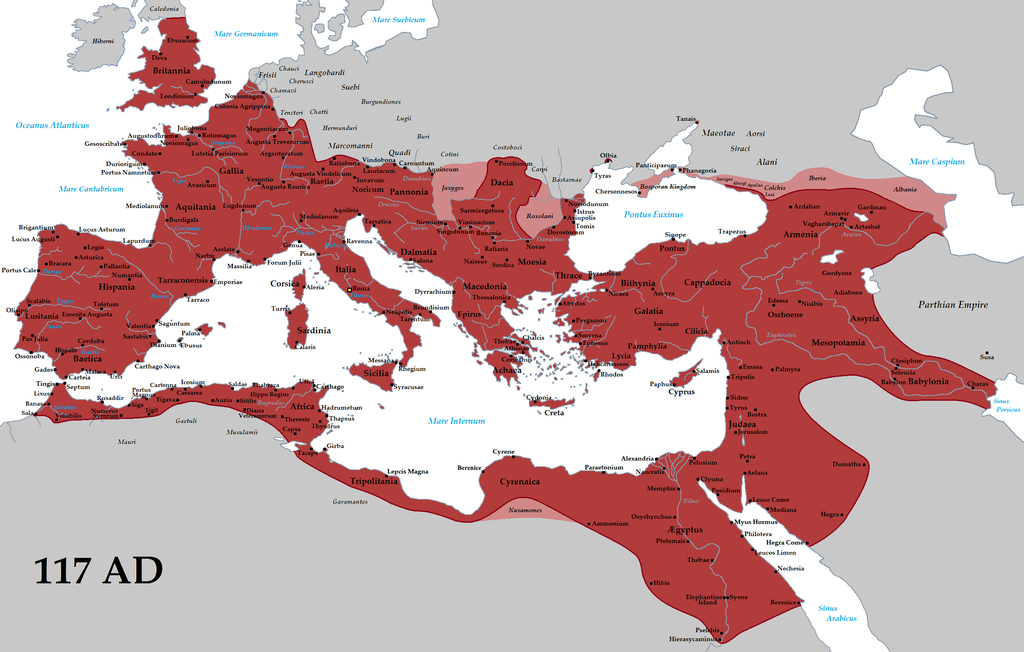L3. Activity 3.1. - Global languages
1- What is a global language?
A global or world language can be defined as a language that is spoken internationally and is learned and spoken by a large number of people as an L2. It is characterized not only by the total number of
speakers (L1 and L2 speakers), but also by its
geographical distribution, as well as use in international organizations and diplomatic relations. Historically, the essential factor for the establishment of a global language is that it is spoken by those who wield power.
Is it the same as a lingua franca?
A world language is usally a “lingua franca”, i.e., a common language that allows people from different and various backgrounds and ethnicities to communicate on a more or less equitable basis.

In this photograph (taken from Wikipedia), we can see the greatest extent of the Roman Empire (c. 117 AD) and the area governed by Latin speakers. In fact, Latin was a very powerful lingua franca in the past.
2- Do you think English can be considered a global language?
Englishis is probably considered the nearest thing there has ever been to a global language. Its reach around the world is much greater than anything achieved historically by Latin or French, and there has never been a language as widely spoken as English. In fact, we could say that, in the fields of business, academics, science, computing, education, transportation, politics and entertainment, English is already established as the de facto lingua franca.
3- Name other languages, from present or past times, which you think are, or were global languages.
Some other languages which can be considered as a world language from present or past times are:
Ancient Greek: the importance of the Greek Empire and its language in the past.
Latin: the same as Greek. Today we can find many languages in the south of Europe which come from Latin. Besides, the colonialist policy developed by some European countries (e.g.: Spain, France, Portugal, etc.) brought also Romance languages to other parts of the world.
French: as we have already mentioned, France became an Empire and brought French to all its territories in the world.
Spanish: like France, Spain created a vast Empire beginning in the XV century and finishing in the end of the XIX century. Click here to see the spread of Spanish.
4- In your opinion, what factors make a language become a global language?
We could say that the linguistic structure or properties might be a key factor to make a language become a global language. However, as Crystal (2003) points out, 'A language does not become a global language because of intrinsic structural properties, or because of the size of its vocabulary'.
Besides, the link between language and culture, religion or great literature does not play a role in defining it the global language.
If it is not about linguistics nor culture, some could think it is due to the amount of native speakers. According to Goh and Lim (2010), this is not true. They consider that the status of a language has little or no links with the quantity of native speakers (Mandarin or Hindi would have become global languages if so). It is, nonetheless, the status of the native speakers which plays a relevant role in raising the status of a language, as well as the political, military or economic power of the country.
- The History of English: http://www.thehistoryofenglish.com/issues_global.html
- Crystal, D. (2003): English as a global language. Cambridge University Press. Chapter 1.
No comments:
Post a Comment